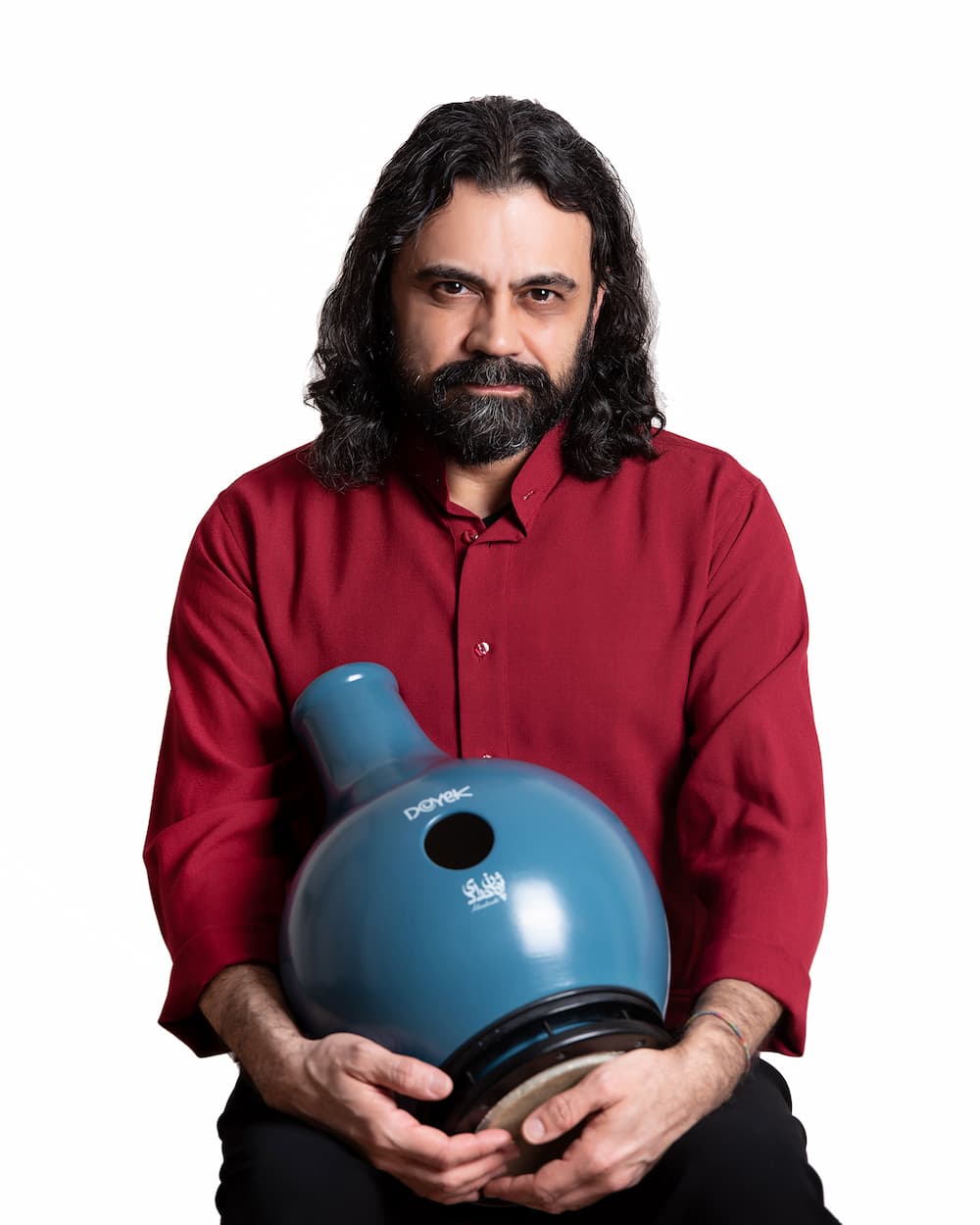
Pejman Hadadi
World-renowned, Pejman Hadadi is considered one of the most innovative Iranian percussionists. He was born in Tehran, Iran on February 19, 1969.
Pejman immigrated to the US in 1989 and began his professional career in 1991. After collaborating with a few different music ensembles Oshagh and Nava, he began performing with Master musician and composer, Hossein Alizadeh in serval concerts in the US which led him to pursue music with more diligence. In 1995, he joined Dastan Ensemble, the highly celebrated and “most-forward-looking Persian music ensemble” (LA Weekly). Pejman has recorded countless critically acclaimed pioneering works with Dastan and continues to perform with the ensemble in some of the world’s most noted concert halls.
In the year 2000, along with Behnam Samani, Reza Samani, Hakim Ludin, Javid Afsari Rad, and Morshed Mehregan he revolutionized the first Iranian percussion ensemble, ZARBANG with whom he has performed extensively in major international festivals and prestigious concert halls in Europe, North America and Hong Kong. His ground-breaking recordings with this ensemble include Rengineh, Middle Eastern and World Percussion, and Call to Love.
Concurrent with his activities with Dastan Ensemble and ZARBANG, Pejman began performing and recording with a variety of musicians, both Iranian and from other cultures. These collaborations, specifically the ones with non-Iranian musicians inspired him to explore and research the world of rhythm in different cultures especially those of the neighboring countries to Iran. Being distinctively drawn to the body of rhythm in India, he began to study the Tabla for 2 years with the aim of understanding cyclic rhythms. Learning the technique of Tabla and its different rhythmic patterns significantly influenced his methodology and attitude towards playing the Tombak.
Considered one of the most notable Iranian Tombak players, Pejman has created a distinct signature style that has greatly impacted Tombak players of his own generation and after. One of his innovations is adding a piece of skin onto the frame of the Tombak with the aim of creating variety, color, and a specific sonic atmosphere. Another one of his innovations is a new version of custom-made tunable frame drums called Pezhvak or Davaayer-e Kooki. These drums come in various sizes in order to create harmonic intervals based on the sound of percussion in traditional Persian music. Designed to be assembled on specific stands, these frame drums can be set up to be played simultaneously and with other appropriate percussive instruments like the Tombak, which adds a greater dimension to the sound and color of ensemble music. Pejman used this combination for the first time in his concerts with Dastan Ensemble and their album Shurideh. Pejman’s combination is now enjoying a wide reach and popularity among the new generation of percussive artists.
For years, concurrent with his performing career, Pejman has been very active in teaching and educating people in the arena of rhythm and percussion. He has numerous instruction manuals that await publication. He received the prestigious Durfee Foundation Master Musician Award twice for dissemination and propagation of Persian music in the US. In 1999, he founded Neyreez World Music Institute in Southern California where for years he taught classes alongside other notable musicians.
He is currently a visiting professor at UCLA at the Department of Ethnomusicology.